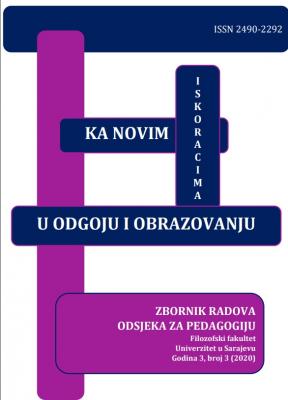EVALUACIJA UPOTREBLJIVOSTI PROGRAMA ZA E-UČENJE MJERENJEM KOGNITIVNOG OPTEREĆENJA
ANALYSIS OF COGNITIVE LOAD AND EDUCATIONAL SOFTWARE USABILITY INFLUENCE ON PERFORMANCE
Author(s): Merima Zukić, Dušanka BoškovićSubject(s): Higher Education , Educational Psychology, Cognitive Psychology, ICT Information and Communications Technologies, Distance learning / e-learning
Published by: Filozofski fakultet Univerziteta u Sarajevu
Keywords: e-learning; Cognitive load theory; usability; teaching;
Summary/Abstract: Cognitive load theory (CLT) is a theoretical framework developed by cognitive psychologists to improve teaching in order to foster learning. CLT states that teaching situation should be designed in accordance to human cognitive architecture. Applying principals of CLT in development of educational software is promising approach in broadening usage of IT in education generally. However, principals offered by CLT need to be evaluated and accommodated to an e-learning situation, considering some crucial differences and specificities of an e-learning situation compared to traditional learning situation. According to CLT poor instruction causes extraneous cognitive load. This is load imposed on the student and does not foster learning. When learner use an educational software tool irrelevant cognitive load can be caused by: (1) educational content presentation (same as with the traditional teaching situation); and (2) flaws in the software tool interaction design. CL causes the necessity of mastering the software tool usage prior to prior to learning main topic of interest. The CL scale developed in this research is modified to address relevant software usability heuristics. This multidisciplinary approach was necessary to include specific features of educational software. In the pilot phase of this research the proposed instrument is examined in experiment with 4 groups of students involved in learning geometry using popular software application. Groups are formed according the students prior knowledge of geometry and their computer skills. Results obtained are discussed and with conclusions relevant to develop instrument for usability evaluation of an e-Learning software tool based on measuring CLT.
Journal: Zbornik radova Odsjeka za pedagogiju
- Issue Year: 3/2020
- Issue No: 3
- Page Range: 39-50
- Page Count: 12
- Language: Bosnian

